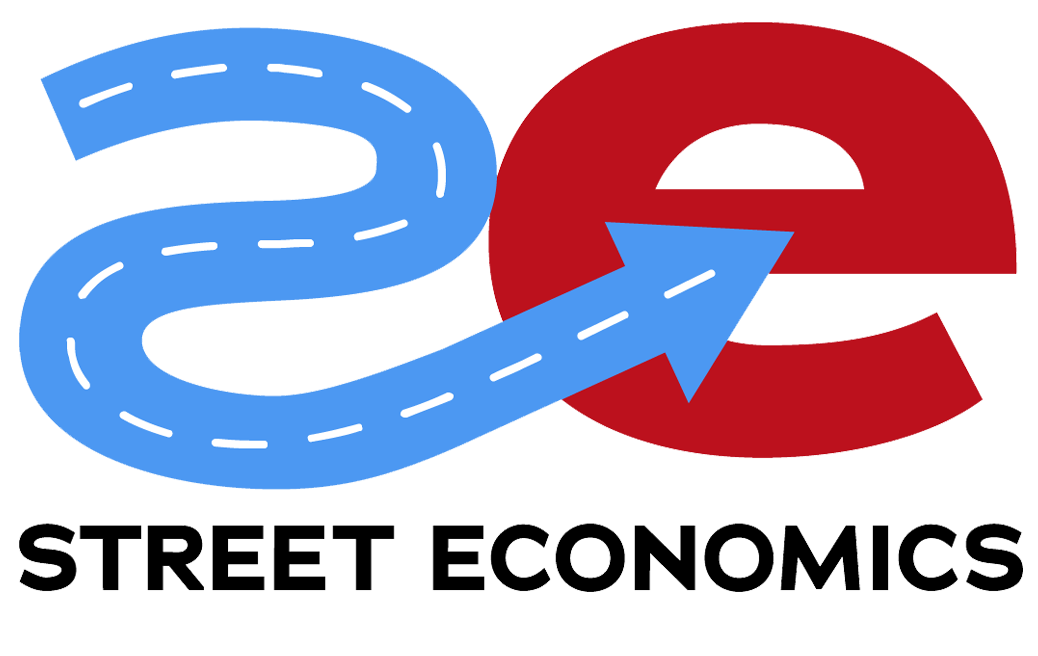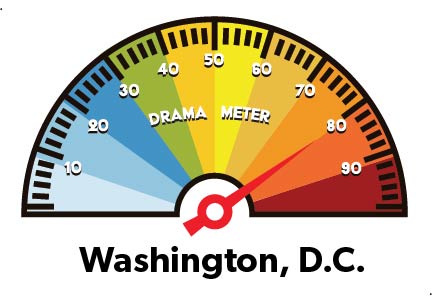Washington, D.C., may be the center of federal power, but its local dynamics are just as complex and dramatic. From debates over autonomy and governance to economic shifts driven by remote work, D.C. faces unique challenges that reflect its dual identity as both a city and a symbol of national politics.
The Civic Vibe™ Drama Meter evaluates these dynamics across eight critical categories, scoring D.C. at 8/10, signaling high levels of tension and caution. Recent federal interventions, including Congress overturning local policies, have reignited debates about home rule and the city’s ability to self-govern. Combined with ongoing urban issues like housing affordability, public safety, and an evolving economy, these tensions place D.C. in a precarious position that requires bold, collaborative solutions.
In this report, we explore the factors driving Washington, D.C.’s Drama Meter score and what the city can do to navigate these challenges effectively.
Drama Meter for Washington, D.C.: 8/10 🔴
| Category | Score | Icon | Key Insight |
|---|---|---|---|
| Local Politics | 8 | 🔴 | D.C. is in the midst of rising tensions between its local government and federal oversight, especially regarding issues like crime laws and home rule. The federal government recently overturned D.C.’s crime bill, reigniting debates about its autonomy. |
| Bureaucracy & Governance | 7 | 🟡 | Governance is under strain as local leaders juggle internal demands for more autonomy while navigating federal intervention. Proposed legislation by Congress threatens D.C.’s ability to self-govern effectively. |
| Economic Development | 7 | 🟡 | While the city is benefiting from projects like the $800 million Capital One Arena renovation, the departure of federal workers due to remote work policies is creating economic uncertainty for downtown businesses. |
| Community Engagement | 7 | 🟡 | Public protests have increased, with residents actively voicing concerns over rising crime rates, housing affordability, and federal interference. This reflects high civic engagement but also heightened tensions. |
| Quality of Life | 6 | 🟡 | Challenges like housing affordability, homelessness, and public safety persist, with crime rates becoming a growing point of contention for residents and policymakers alike. |
| Infrastructure & Development | 7 | 🟡 | Significant infrastructure projects are ongoing, including efforts to modernize public transportation, though funding issues and delays are slowing progress. |
| Media & Public Perception | 8 | 🔴 | D.C.’s image is heavily shaped by national and international media, which often frame the city as a symbol of political dysfunction, overshadowing its local progress. |
| External Factors | 9 | 🔴 | Federal decisions, such as Congress overriding local policies and proposed federal worker relocations, heavily impact the city, contributing to instability and uncertainty. |
Legend
| Score Range | Icon | Description |
|---|---|---|
| 1–2 | ⚪️ | Stable but Boring: Minimal conflict or risk, but potentially stagnant growth and innovation. |
| 3–5 | 🟢 | Moderate Drama, Manageable: Manageable challenges with healthy civic activity. |
| 6–7 | 🟡 | High Drama, Caution: Noticeable tensions, unresolved issues, or rising risks that could escalate. |
| 8–10 | 🔴 | Extreme Drama, Crisis: Severe instability due to political, economic, or social turmoil. |
Why This Matters
Washington, D.C., is more than the nation’s capital—it’s also home to over 700,000 residents whose lives are deeply affected by the city’s unique political and economic environment. Recent federal interventions, combined with urban challenges like homelessness, public safety, and a shifting downtown economy, make it one of the most complex cities to govern.
Actionable Insights
- Strengthen Advocacy for Autonomy: D.C. leaders must build coalitions with allies in Congress to push for consistent respect for home rule and reduce federal overrides.
- Revitalize Downtown Economy: Focus on attracting diverse industries, supporting local businesses, and reimagining the downtown area to counter the effects of remote work.
- Address Crime and Public Safety Transparently: Collaborate with law enforcement and community leaders to implement effective crime reduction strategies while rebuilding public trust.
- Expand Affordable Housing Efforts: Streamline zoning processes and allocate more resources to affordable housing programs to reduce homelessness and improve livability.
Summary
Washington, D.C.’s 8/10 🔴 Drama Meter score reflects significant challenges stemming from its unique role as a federal and local hub. Autonomy debates, economic shifts, and persistent urban issues are driving tensions. However, the city has the opportunity to address these issues head-on with bold strategies for governance, economy, and quality of life improvements.


No responses yet